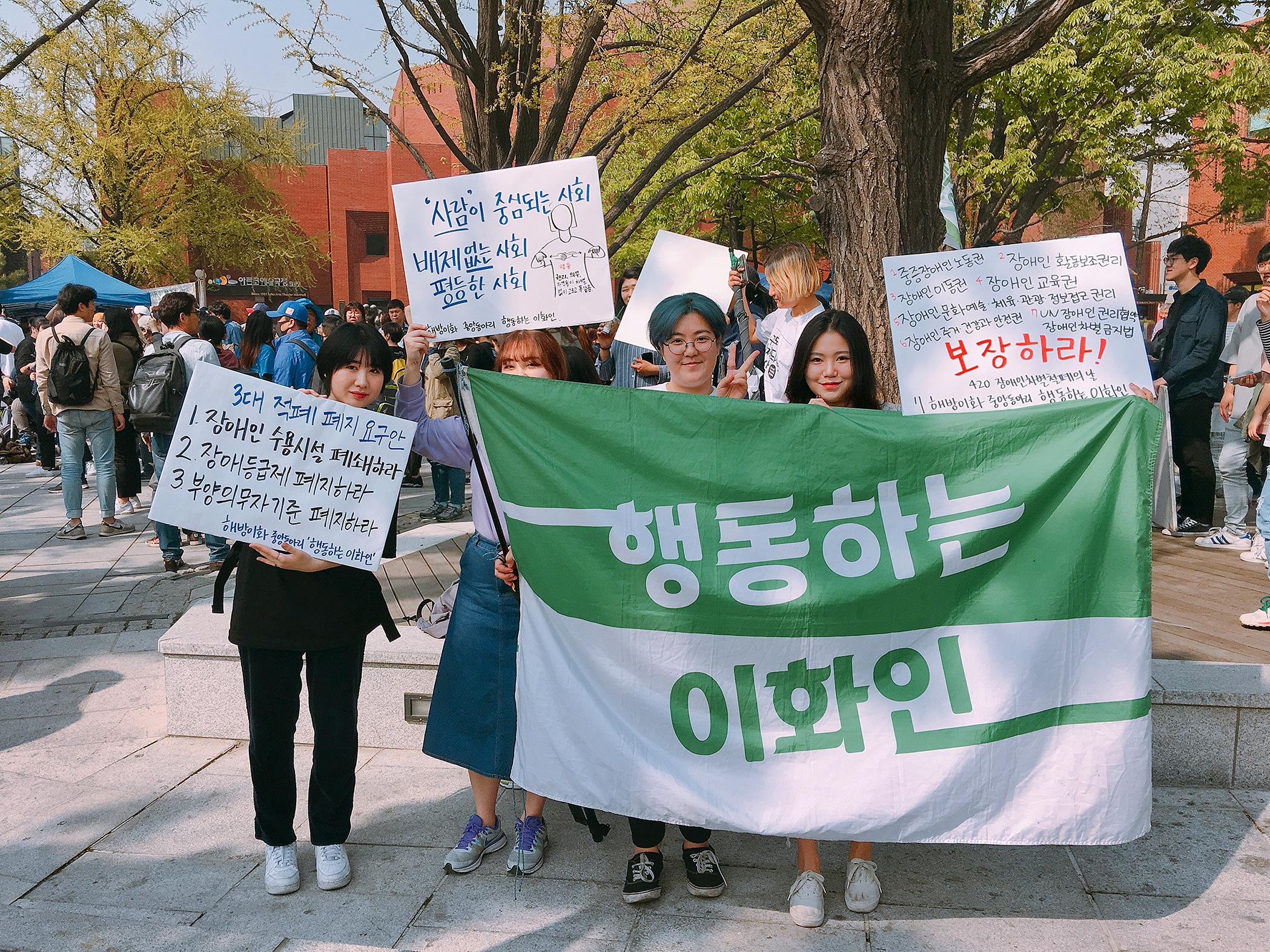
Movement Ewha is a student club originating from a group of students who gathered to join the 2015 mass protests against former president Park Geun-hye. Having become a central school club supported by Ewha’s club foundation, Movement Ewha is actively taking part in various events to resolve our society’s absurdities, and has become one of the student organizations representing the school’s active participation in social change.
To commemorate April 20, Korea’s Day of Persons with Disabilities, which they preferred to call National Day for the Elimination of Disability Discrimination, Movement Ewha prepared a pink paper boat, which symbolizes the rights of social minorities, in the Student Union Building for students to write their thoughts on disabled’s rights. They also put a pink sticker on campus facilities that hinder disabled people’s mobility rights, such as stairs without wheelchair ramps and hallways with steep slopes, to raise awareness on the matter.
Additionally, Movement Ewha holds monthly seminars about current issues, or selects a social science book to read, and pursues social change by acting out the things they learned. This semester, they have dealt with themes such as gender inequality, denuclearization, and temporary workers’ rights.
Choi Won-jung, a senior from Department of International Studies and head executive of Movement Ewha, has been a member of the club since it was founded. According to Choi, her participation in the club has taught her things that she couldn’t learn from her regular classes.
What is the hardest thing you’ve faced during your time at Movement Ewha?
We do have a lot to do, especially when we are one of the hosting groups for an event. We have had to take care of everything, from management to small leaflets. It makes me wish I had the capability to do more. But the biggest thing that frustrates me is not the difficult activities of our club, but the social ills that we face. There are so many problems in our society, and it makes me wonder how we can fix all of those.
There often seem to be stereotypes against “(political) activist groups.” As a member of a student activist group, did you have trouble facing the prejudices?
Things are quite different this year. We received a lot of positive reactions from fellow students. I think it’s hard to have no stereotypes against social movements in this society, since it is mostly framed negatively by the media and the privileged. But I don’t think we can persuade people by speech. When our activities go in the right direction, and more people get to know what we are doing, we would then be able to persuade those people through action.
When do you feel most rewarded?
I think our club does a lot of meaningful work, and we especially feel happy when we see more people participating or taking interest in what we do. When we opened an on-campus meeting with workers fired by KTX, to raise awareness on we were very surprised to see a lot of non-member participants that came to the event to talk with them. It’s hard to say it’s solely because of our work, but we feel happy when we see more and more social movements being acknowledged.
Do you have anything more to say to Ewha students?
People say university is a place for learning, and we often learn more by discussing with friends and participating in seminars than just attending classes at school. Movement Ewha goes beyond reading and discussion to practice in real life, and we aim to change society through our actions. It’s a very rewarding and joyful process. I hope Ewha students will also take part in social change, not just in club activities, but in their own lives, too.

